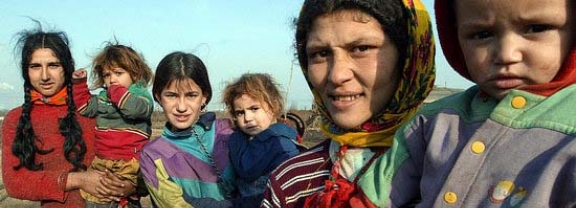Slovenia: Committee and delegation in accord over challenges faced in the country
Published on 31 Mar 2016, 11:00 AM
Review of Slovenia on the implementation of the ICCPR took place on 15 and 16 March 2016

The third periodic review of Slovenia on the implementation of the ICCPR took place on March 15th and 16th 2016. Discrimination against minorities (in particular the Roma community), the vulnerability of asylum seekers and the status of persons erased from the register after the dissolution of Yugoslavia were discussed at length. Violence against women, defamation and prison conditions were also thoroughly covered in the dialogue.
"The Committee regrets the measures taken by the State party to respond to the recent influx of asylum-seekers and migrants."
-
Deployment of the army to manage the increased influx of migrants
In the context of the migrant crisis, the experts were particularly concerned by the use of barbed wire at the border and the deployment of the Army to manage the increased influx of migrants. The decision to close the borders adjacent to Croatia and to reject refugees arriving by train was also questioned by one of the members. Likewise, another expert demanded answers regarding the protection of asylum seekers from human trafficking - what measures were being taken? Additionally, the Committee expressed doubts regarding respect for the principle of non-refoulement and the actual granting of legal assistance to asylum seekers. The delegation attempted to reassure the Committee by stating that the purpose of the temporary barriers was to direct the flow of migrants to the entry points, whilst the Army was intended to provide logistical support. The police were also being trained to identify vulnerable groups and victims of human trafficking in particular. The delegation further reported that the European Union were currently cooperating with Turkey on the issue of border closure. Finally, the State mentioned that there was an NGO in charge of providing free legal assistance to asylum seekers and unaccompanied minors.
Discrimination against Roma community
Anti-discrimination legislation in relation to the Roma community, and anti-discrimination legislation in general, was the other main issue raised by the Committee during the Review. The Committee stressed that the State lacked strategic leadership on anti-discrimination and that current legislation was not being enforced. The experts were aware of the drafting of a new national programme of measures addressing the Roma people and they requested more information on the plans to make amendments to the Roma Community Act. The delegation fully acknowledged that the progress on this issue was slow. Despite the delay, the drafting of the new programme was now finalised and the new Act would be ready for this year. A new Law of Protection against Discrimination had also been submitted to the Parliament.
Stateless persons after the splitting of Yugoslavia
Approximately 13 000 persons had become aliens or were still stateless because they did not apply for Slovenian citizenship after the splitting of Yugoslavia in 1992. The experts sought information as to why these 13 000 had not been able to apply for a permanent status of residence in Slovenia. They also wanted to know what remedies were available for these cases. According to the delegation, the “erased” were actually able to receive permanent residential status and were entitled to compensation pursuant to the 2013 Compensation Act. The representative from the Slovenian government assured that the 13 000 remaining was due to a lack of interest of the erased to regulate their status. They regretted this state of affairs but they could not fully implement the appropriate legislation without the cooperation of those affected.
In his concluding remarks, the Chairperson acknowledged a convergence between the views of the Committee and those of the delegation regarding areas for improvement. He expressed his appreciation for the fruitful nature of the dialogue whilst stressing the importance of enforcing the new legislative initiatives.
The Concluding Observations for which the State should provide information on the implementation within one year, concern:
- Racism and xenophobia, including hate speech
- Asylum-seekers, migrants and refugees
- Vulnerable persons within the migration flow
The next (4th) periodic report of Slovenia should be submitted by 31 March 2021.


